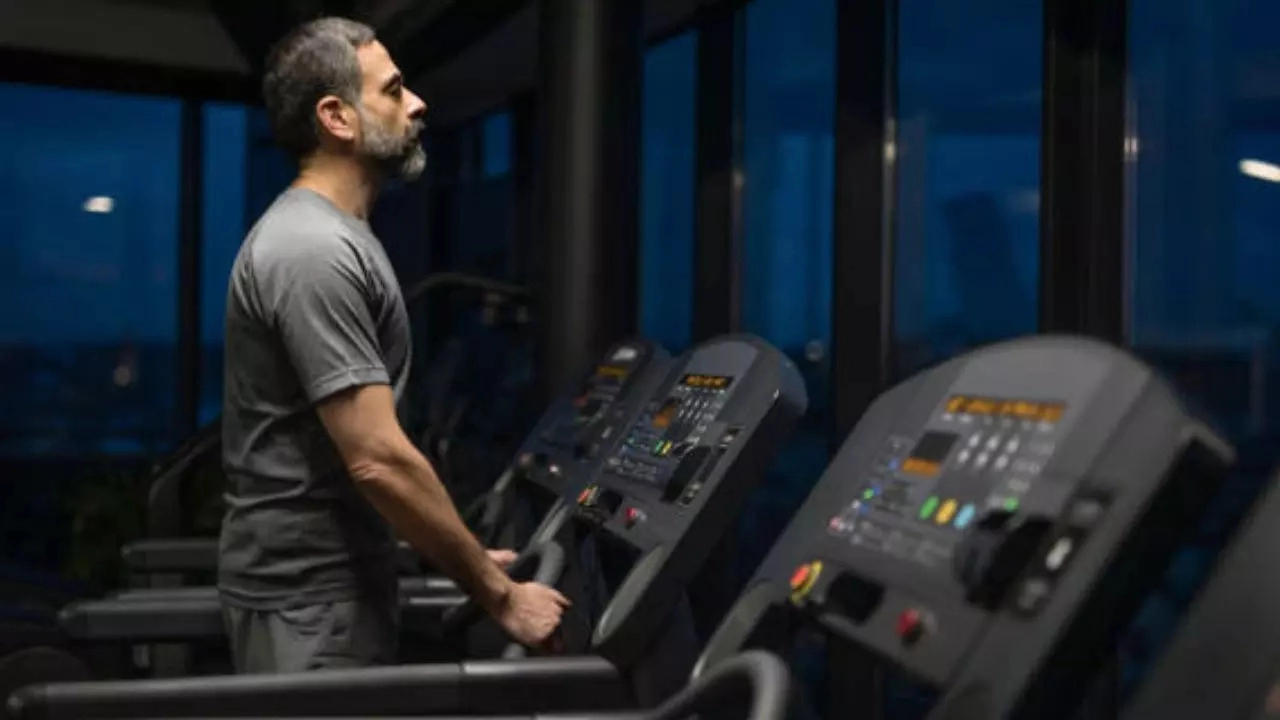Pallavi Mehra • 08 Sep 2024
What Happens To Your Body When You Workout Late At Night?

What Happens To Your Body When You Workout Late At Night? (Image Credits: iStock)
In today's fast-paced world, many people find it challenging to squeeze in a workout during the day, leading to late-night exercise sessions. While working out at night has its benefits, such as fewer gym crowds and a way to relieve stress before bed, it also has unique effects on your body. But is working out before bedtime a good idea? While some enjoy the convenience of exercising after a long day, others question whether it might disrupt their sleep or have negative effects on their body.
Exercise is known to improve overall health, boost mood, and increase energy levels, but the timing of your workout can play a significant role in how your body responds. For some, a late-night workout can lead to better sleep and muscle recovery, while others may experience difficulty winding down due to elevated energy and heart rates.
Hence, we got in touch with Dr Indramani Upadhyay, MPT Ortho & HOD, The Center for Knee & Hip Care, Vaishali, Ghaziabad who shares benefits, drawbacks and tips to keep in mind for late-night workouts.
The Benefits of Late-Night Workouts
1. Increased Strength and Endurance: Studies suggest that your body temperature is at its peak in the evening, leading to greater muscle flexibility, strength, and endurance. This means you might perform better and push harder during a late-night workout compared to early in the morning.
2. Stress Relief and Improved Mood: After a long day, a workout can serve as a powerful stress reliever. Exercise triggers the release of endorphins, often referred to as 'feel-good' hormones, which can help improve your mood and reduce anxiety, promoting a sense of relaxation.
3. Better Muscle Recovery: Evening workouts might enhance muscle recovery. Since your body's circulation improves throughout the day, it can lead to better nutrient delivery to muscles during and after a workout, aiding in quicker recovery.
Potential Downsides of Working Out Late
1. Disruption of Sleep Patterns: One of the most significant concerns with late-night workouts is their impact on sleep. Exercise stimulates the release of adrenaline and cortisol, hormones that increase alertness and energy levels. If you work out too close to bedtime, this heightened state of alertness can make it harder to fall asleep, leading to a disrupted sleep cycle.
2. Increased Appetite: After an intense workout, your body craves nutrients to refuel and repair muscles. This can lead to increased hunger late at night, tempting you to consume larger or unhealthier meals before bed. Eating heavy meals late at night can interfere with digestion and disturb sleep.
3. Higher Risk of Injury: Fatigue from a long day can affect your coordination, reaction time, and decision-making abilities, which might increase the risk of injury during a late-night workout. This is particularly true for exercises that require a high level of focus, like weightlifting or high-intensity interval training (HIIT).
Tips for Late-Night Workouts
If late-night exercise is your only option, here are a few tips to optimize your routine:
- Allow a Cool-Down Period: After your workout, take time to cool down and relax. Gentle stretching or yoga can help lower your heart rate and prepare your body for sleep.
- Watch Your Diet: Opt for a light, protein-rich snack post-workout instead of a heavy meal. This will help refuel your body without overwhelming your digestive system before bed.
- Plan Your Sleep Schedule: Ensure you allow enough time between your workout and bedtime to let your body wind down. Consider developing a calming pre-sleep routine, like reading or taking a warm bath, to counteract the stimulating effects of exercise.
Get Latest News Live on Times Now along with Breaking News and Top Headlines from Fitness, Health and around the world.